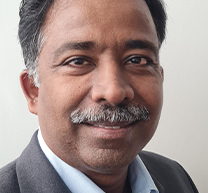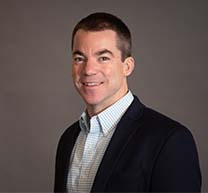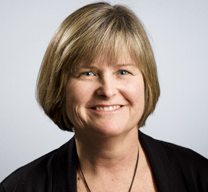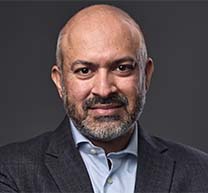GEC en la Conferencia Anual Responsible Business 2024
EVOLUCIÓN DE LA ELECTRÓNICA SOSTENIBLE: PREPARANDO LA CADENA DE SUMINISTRO PARA LA PRÓXIMA GENERACIÓN DE CRITERIOS EPEAT
21 de noviembre de 2024, 9 am - 12 pm PST
La etiqueta ecológica EPEAT ha sido una señal vital en el mercado tecnológico durante casi 20 años, alineando a compradores, marcas de electrónica y otras partes interesadas en torno a una definición compartida de lo que significa que un producto sea "sostenible". Esta definición evoluciona tras años de esfuerzos de múltiples partes interesadas por revisar los criterios de la EPEAT, creando un nuevo punto de referencia para satisfacer las crecientes expectativas en este ámbito. La próxima generación de criterios EPEAT no sólo elevará el listón para la comunidad mundial, sino que también exigirá una interacción mucho mayor con los socios de la cadena de suministro.
Únase al Global Electronics Council (GEC) en la Conferencia Anual Responsible Business 2024 para asistir a un evento interactivo sobre el importante papel de los socios de la cadena de suministro en el desarrollo de productos sostenibles, incluido el papel del montaje final y del fabricante de componentes en el cumplimiento de estas próximas revisiones de las normas de la etiqueta ecológica EPEAT.
Explore estas revisiones de los criterios y los requisitos específicos de los proveedores que abordan cuatro áreas materiales, entre las que se incluyen:
- Cadena de suministro responsable
- Clima
- Circularidad
- Productos químicos
Además, profundizaremos en cómo las herramientas y recursos de la Responsible Business Alliance (RBA) y la Responsible Minerals Initiative (RMI) pueden acelerar el cumplimiento de estos criterios. Como participante, podrá conocer mejor los recursos, programas y servicios de asesoramiento diseñados para ayudar a su empresa y a sus proveedores a estar "preparados para la EPEAT". No se pierda este evento de 3 horas para socios: la asistencia es gratuita y habrá refrescos disponibles.
Ponentes destacados

Balan Shanmuganathan

Cassie Gruber

Christy Jung
Director de programa, HP

Bob Mitchell
Consejero Delegado, Global Electronics Council

Patricia Dillon
Vicepresidente de Criterios y Desarrollo de Categorías, Global Electronics Council

Kaushik Ramakrishnan
Vicepresidente de Estrategia y Desarrollo de Mercados Mundiales, Global Electronics Council
Agenda del acto
21 de noviembre de 2024 - Todas las horas indicadas a continuación corresponden a la hora local del Pacífico.
9:00 - 10:00 - La próxima fase de EPEAT: los objetivos de GEC para un impacto sostenible y los criterios actualizados de EPEAT
Únase a los líderes de GEC para compartir cómo la ecoetiqueta EPEAT está evolucionando para ampliar la cobertura de los temas de sostenibilidad material y fortalecer el compromiso de la cadena de suministro a través de la implementación de la próxima generación de criterios EPEAT. La sesión cubrirá una visión holística de los nuevos criterios revisados, destacando los avances críticos en las cadenas de suministro responsables, la reducción del impacto climático, la seguridad química y el diseño de productos circulares. A continuación tendrá lugar una charla informal en la que se analizará cómo estas normas en evolución darán forma al futuro de la electrónica sostenible e impulsarán un cambio cuantificable en todo el sector.
10:00 - 11:00 - Perspectivas de la cadena de suministro: Una inmersión profunda en los criterios revisados de EPEAT
Explore los criterios actualizados de la EPEAT desde el punto de vista de un proveedor en esta sesión. Recorreremos las complejidades de los criterios actualizados y ofreceremos información práctica sobre el impacto de estos cambios en cada fase de la cadena de suministro. En nuestra segunda charla, un experto del sector profundizará en los retos y oportunidades que estos criterios suponen para la fabricación de componentes, ayudando a los asistentes a comprender el alcance total del impacto de la EPEAT en los proveedores.
11:00 - 11:30 - Participación de los proveedores de GEC: Recursos y programas para acelerar la preparación de la cadena de suministro
Equípese con las herramientas y recursos que ofrece GEC para ayudar a los proveedores a cumplir los criterios revisados de la EPEAT. Esta sesión ofrecerá una visión general de los próximos recursos, programas y servicios de asesoramiento para crear una cadena de suministro "preparada para EPEAT". A continuación tendrá lugar nuestra charla informal final, en la que se ofrecerán ideas francas sobre la participación de los proveedores, destacando las formas de fomentar la colaboración y obtener resultados significativos.
11:30 - 12:00 - Mesas redondas con GEC
Diseñada como un foro abierto, esta sesión ofrece a los asistentes horas de oficina dedicadas y reuniones individuales con el personal del GEC para abordar preguntas específicas de sesiones anteriores. Si necesita aclaraciones sobre los criterios, recursos de proveedores u orientación sobre los próximos cambios de criterios, este foro abierto le ofrece el apoyo personalizado que necesita para navegar con confianza por la próxima generación de criterios de la EPEAT.
Más información sobre el Consejo Mundial de la Electrónica
GEC trabaja para acelerar el cambio sistémico con el fin de crear una industria electrónica 100% sostenible para 2050. Esto significa cero emisiones netas, cero residuos, neutralidad hídrica y un impacto adverso mínimo sobre el medio ambiente y los derechos humanos a lo largo del ciclo de vida de los productos y servicios.
Como administradores de la ecoetiqueta EPEAT, establecemos la norma mundial para la electrónica sostenible. Ayudamos a los fabricantes y compradores de productos electrónicos a cumplir sus objetivos de sostenibilidad a través de nuestra acreditación, defensa y liderazgo líderes en el mundo. Estamos reconfigurando la relación del mundo con la tecnología y los recursos naturales y haciendo posible que la electrónica deje de ser un reto medioambiental y social cada vez mayor para convertirse en una solución empoderadora y sostenible.
Más información sobre la Alianza Empresarial Responsable
La Responsible Business Alliance es la mayor coalición industrial del mundo dedicada a la conducta empresarial responsable en las cadenas de suministro mundiales.
Fundada en 2004 por un grupo de empresas líderes del sector de la electrónica, la Responsible Business Alliance (RBA), antes Electronic Industry Citizenship Coalition (EICC), es una organización sin ánimo de lucro formada por empresas de electrónica, comercio minorista, automoción y juguetes comprometidas con el apoyo a los derechos y el bienestar de los trabajadores y las comunidades de todo el mundo afectados por las cadenas de suministro mundiales. Los miembros de la RBA se comprometen y rinden cuentas ante un Código de Conducta común y utilizan una serie de herramientas de formación y evaluación de la RBA para apoyar la mejora continua de la responsabilidad social, medioambiental y ética de sus cadenas de suministro. Además de los miembros de la RBA, miles de empresas que son proveedores de primer nivel de los miembros están obligadas a aplicar el Código de Conducta de la RBA. Visite https://www.responsiblebusiness.org/about/rba/ para obtener más información.

Patricia Dillon
Vicepresidente de Criterios y Desarrollo de Categorías, Global Electronics Council
Patty supervisa el proceso de desarrollo de criterios, la estrategia y el equipo de GEC para las categorías de productos EPEAT nuevas y existentes, así como otras iniciativas de GEC. Dirige la iniciativa para transformar el proceso de desarrollo de criterios del GEC en un proceso más eficiente, ágil y basado en la ciencia, en el que participen partes interesadas y expertos amplios y diversos. Su equipo es responsable de la vigilancia continua y el desarrollo de nuevas categorías de productos, la preparación de la Investigación del Estado de la Sostenibilidad sobre el impacto de la sostenibilidad de la electrónica y las estrategias para mitigar los impactos, la gestión de los procesos de múltiples partes interesadas que construyen y mantienen los criterios de sostenibilidad para su aplicación en el Registro EPEAT, y el desarrollo de la calculadora de beneficios ambientales de la electrónica del GEC. Se incorporó a GEC en 2016, aportando un profundo conocimiento del desarrollo de criterios basados en el consenso y una larga trayectoria en EPEAT. Ha participado en las normas que constituyen la base de la EPEAT desde su creación, primero como parte interesada invitada a participar en el desarrollo de la norma inicial sobre ordenadores y, posteriormente, en puestos de liderazgo para las normas sobre televisores, servidores y fotovoltaica.
Patty cuenta con más de treinta años de experiencia en investigación, facilitación y gestión de programas de desarrollo de normas, política medioambiental y estrategia empresarial, con un amplio trabajo en electrónica, plásticos y envases. Antes de incorporarse a GEC, Patty fue consultora independiente, gestora de programas a tiempo parcial en el Northeast Recycling Council, donde dirigió el State Electronics Challenge y el Toxics in Packaging Clearinghouse, e investigadora asociada en la Universidad de Tufts. Patty tiene un máster en Ingeniería Civil con especialización en Ingeniería Medioambiental por la Universidad de Tufts, y es licenciada en Biología por la Universidad de Tufts.

Bob Mitchell
Consejero Delegado, Global Electronics Council
Como Consejero Delegado del Global Electronics Council, Bob se encarga del liderazgo y la supervisión estratégica de la organización para cumplir su visión y su misión. Aporta una amplia experiencia en empresas y derechos humanos, sostenibilidad medioambiental, gestión de organizaciones sin ánimo de lucro y sostenibilidad y programas corporativos.
Como antiguo vicepresidente de Derechos Humanos y Medio Ambiente de Responsible Business Alliance (RBA), Bob dirigió el desarrollo y la aplicación de estrategias para programas de conducta empresarial responsable en un entorno multisectorial y de múltiples partes interesadas. En este puesto, dirigió la creación y el lanzamiento de esfuerzos significativos en áreas como la Diligencia Debida en el Trabajo Forzoso, la Descarbonización de las Cadenas de Suministro, la Circularidad y la Resiliencia de la Cadena de Suministro.
Es un veterano de Hewlett Packard y Hewlett Packard Enterprise, con más de una década y media trabajando en el campo de la sostenibilidad. Antes de trabajar en la RBA, fue Director de Responsabilidad Social y Medioambiental Global en Hewlett Packard Enterprise, dirigiendo un equipo de profesionales en derechos humanos, administración medioambiental de productos, responsabilidad de la cadena de suministro y minerales conflictivos, entre otras áreas temáticas. Bob también formó parte del Consejo de Administración de RBA y del Consejo Asesor de Social Accountability International (SAI). Posee un MBA por la Universidad de Arizona y una licenciatura por la Universidad de Virginia.

Kaushik Ramakrishnan
Vicepresidente de Estrategia y Desarrollo de Mercados Mundiales, Global Electronics Council
Como Director Senior de Crecimiento Estratégico, Kaushik Ramakrishnan impulsa la estrategia de impacto y crecimiento a largo plazo de GEC. Como miembro del equipo directivo, trabaja en estrecha colaboración con el director general y la dirección de GEC para idear, incubar y materializar oportunidades de alto crecimiento a escala mundial con el fin de cumplir la misión y la visión de la organización.
Kaushik tiene más de 20 años de experiencia trabajando en el sector privado y con empresas emergentes y organizaciones sin ánimo de lucro en cuatro continentes. Es un profesional de la sostenibilidad que ha trabajado extensamente en estrategias de sostenibilidad corporativa, cadenas de suministro sostenibles y financiación climática. Antes de incorporarse a GEC, Kaushik ocupó puestos directivos en Sustainalytics, Rainforest Alliance, IDH - la Iniciativa de Comercio Sostenible, Ericsson, Infosys y Pula Advisors.
Kaushik tiene un máster en Administración de Empresas por la Indian School of Business de Hyderabad y es licenciado en Ingeniería Informática por la Universidad Tecnológica Visvesvaraya. Actualmente vive en Gante (Bélgica).

Balan Shanmuganathan
Director de Ingeniería Senior de Sostenibilidad, Seagate Technology
Balan Shanmuganathan es el Director de Ingeniería Senior de Sostenibilidad en Seagate Technology. Cuenta con más de 30 años de experiencia en Salud y Seguridad Medioambientales y Sostenibilidad. En su puesto actual en Seagate, Balan es responsable del programa general de sostenibilidad de la empresa. En los últimos 5 años ha estado trabajando en los esfuerzos de circularidad de Seagate involucrándose con clientes, recicladores, socios de la cadena de suministro y organismos de certificación para avanzar en los esfuerzos de circularidad de Seagate.

Cassie Gruber
Director de Soluciones Empresariales de Sostenibilidad, Jabil
Trabajando estrechamente con clientes y segmentos a nivel mundial, Cassie Gruber cultiva las estrategias de economía circular de Jabil. Líder consumada en el sector del reciclaje electrónico y la sostenibilidad, Cassie se unió a Jabil en 2018 para desarrollar tecnologías ecológicas innovadoras como experta en economía circular. Ella apoya a los clientes de Jabil en todas las industrias en sus objetivos e iniciativas de reciclaje y economía circular, a través de toda la cadena de suministro inversa donde los productos y materiales se reutilizan y reciclan.
Tras estudiar arte y filosofía durante una década, la trayectoria profesional de Cassie cambió radicalmente cuando se convirtió en socia de una pequeña empresa de residuos electrónicos en Buffalo (Nueva York). A continuación, Cassie pasó dos décadas en el sector del reciclaje de productos electrónicos centrándose en la sostenibilidad medioambiental y el cumplimiento de la normativa. Con su amplia experiencia y dedicación a la sostenibilidad, Cassie ha ayudado a Jabil a evolucionar hacia una cadena de suministro de valor circular basada en datos.

Christy Jung
Director de programa, HP
Christy Jung es Directora de Programas en HP, especializada en Cumplimiento y Sostenibilidad de Productos. Con una sólida experiencia en el impulso de estrategias de etiquetado ecológico, iniciativas de sostenibilidad y cumplimiento normativo, dirige un equipo interregional centrado en el avance del desarrollo de productos sostenibles e impulsa soluciones de descarbonización con los proveedores. Representa a HP como miembro con derecho a voto en el comité técnico de la EPEAT para el módulo de uso sostenible de los recursos. Christy es licenciada en Gestión de la Cadena de Suministro por la Universidad Estatal de Arizona y está cursando un máster en Política Energética y Clima por la Universidad Johns Hopkins.

